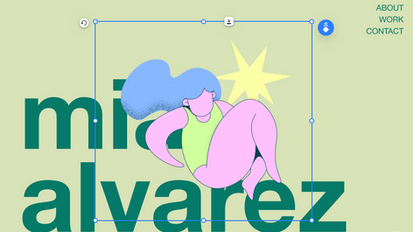How to Master What Is Web Design
What Is Web Design in 3 Steps
What Is Web Design
In today’s digital age, having a strong online presence is essential for businesses and individuals alike. Whether you are looking to create a personal blog, launch an e-commerce site, or establish an online portfolio, finding the right web hosting provider is crucial for ensuring your website is secure, reliable, and easily accessible to users. With so many web hosting options available on the market, it can be overwhelming to choose the best provider for your needs. In this article, we will compare various web hosting options and help you make an informed decision.

What Is What Is Web Design?
What Is Web Design
Importance of Web Hosting
Web hosting is essential for any website to be visible on the internet. Without web hosting, your website would not be accessible to users. When you sign up for a web hosting service, you are essentially renting server space where your website files are stored. The web hosting provider ensures that your website is available to users 24/7, and also provides technical support and maintenance services to keep your website running smoothly.
Another important aspect of web hosting is website speed and performance. The speed at which your website loads can have a significant impact on user experience and search engine rankings. A reliable web hosting provider will ensure that your website loads quickly and is accessible to users across the globe. In addition, web hosting providers offer security features such as SSL certificates and regular backups to protect your website from cyber threats and data loss.
Different Types of Web Hosting
There are several types of web hosting services available, each with its own set of features and benefits. The most common types of web hosting are:
1. Shared Hosting: Shared hosting is the most basic and affordable type of web hosting. In this setup, multiple websites share the same server resources, including storage space, bandwidth, and CPU power. Shared hosting is ideal for small businesses and individuals with low traffic websites.
2. VPS Hosting: VPS (Virtual Private Server) hosting is a step up from shared hosting. In VPS hosting, websites are hosted on virtual servers that mimic dedicated servers but share server resources with other websites. VPS hosting offers more control and customization options compared to shared hosting.
3. Dedicated Hosting: Dedicated hosting provides users with their own physical server. This type of hosting is ideal for websites with high traffic and resource-intensive applications. Dedicated hosting offers the highest level of performance and security but is also the most expensive option.
4. Cloud Hosting: Cloud hosting is a flexible and scalable hosting solution that utilizes cloud infrastructure to host websites. In cloud hosting, websites are hosted on a network of virtual servers that can be easily scaled up or down based on demand. Cloud hosting is a cost-effective option for websites with fluctuating traffic levels.
Factors to Consider When Choosing a Web Hosting Provider
When choosing a web hosting provider for your website, there are several factors to consider to ensure that you are getting the best service for your needs. Some of the key factors to consider include:
1. Reliability and Uptime: It is crucial to choose a web hosting provider with a proven track record of reliability and uptime. Look for providers that guarantee uptime of at least 99.9% and have robust infrastructure to prevent downtime.
2. Performance and Speed: Website speed and performance are critical for user experience and search engine rankings. Choose a web hosting provider that offers fast servers and optimized performance for your website.
3. Security Features: Security is a top priority for websites, especially those that handle sensitive information. Look for web hosting providers that offer SSL certificates, regular backups, and other security features to protect your website from cyber threats.
4. Customer Support: If you encounter technical issues or need assistance with your website, reliable customer support is essential. Choose a web hosting provider that offers 24/7 support via multiple channels such as phone, email, and live chat.
5. Pricing and Plans: Compare pricing and features across different web hosting providers to find a plan that fits your budget and needs. Consider factors such as storage space, bandwidth, and scalability when choosing a hosting plan.
1. Wix
Wix is one of the most popular website building sites on the market, and for good reason. With Wix, you can choose from hundreds of customizable templates and easily drag and drop elements to create your website. Wix also offers a range of features such as a built-in blog, e-commerce capabilities, and SEO tools to help you drive traffic to your website. Additionally, Wix has a user-friendly interface that makes it easy for beginners to create a stunning website in a matter of hours.
2. Squarespace
Squarespace is another top website building site that is known for its sleek and modern templates. Squarespace offers a range of customization options, allowing you to personalize your website to fit your brand. With Squarespace, you can easily add images, videos, and text to create a visually appealing website. Squarespace also offers e-commerce capabilities, making it a great option for businesses looking to sell products online. Additionally, Squarespace has a built-in analytics tool that allows you to track traffic and engagement on your website.
3. WordPress
WordPress is a versatile website building platform that is used by millions of websites around the world. With WordPress, you have full control over your website’s design and functionality, making it a great option for those looking for more customization options. WordPress offers a wide range of themes and plugins that allow you to add features such as contact forms, social media integration, and e-commerce capabilities to your website. Additionally, WordPress is highly scalable, making it a great option for businesses of all sizes.
4. Weebly
Weebly is a user-friendly website building site that is perfect for beginners. With Weebly, you can choose from a range of professionally designed templates and easily customize them to fit your needs. Weebly also offers drag and drop functionality, making it easy to add elements such as images, videos, and text to your website. Weebly also offers e-commerce capabilities, making it a great option for small businesses looking to sell products online. Additionally, Weebly offers built-in SEO tools to help you drive traffic to your website.
5. Shopify
Shopify is a popular website building site that is specifically designed for e-commerce businesses. With Shopify, you can create a stunning online store with ease. Shopify offers a range of customizable templates and features such as product listings, payment processing, and order tracking. Shopify also offers a range of marketing tools to help you drive traffic to your online store. Additionally, Shopify offers 24/7 customer support to help you with any issues that may arise.

How to Master What Is Web Design
What Is Web Design
In conclusion, web design trends play a crucial role in creating a modern, visually appealing, and user-friendly website. By staying current with the latest trends and incorporating them thoughtfully into their design, businesses can attract and retain customers, stand out from competitors, and establish a strong online presence. Whether it’s embracing dark mode, experimenting with neumorphism, or integrating voice user interfaces, businesses can leverage these trends to create innovative and engaging websites that drive success in 2021 and beyond.


